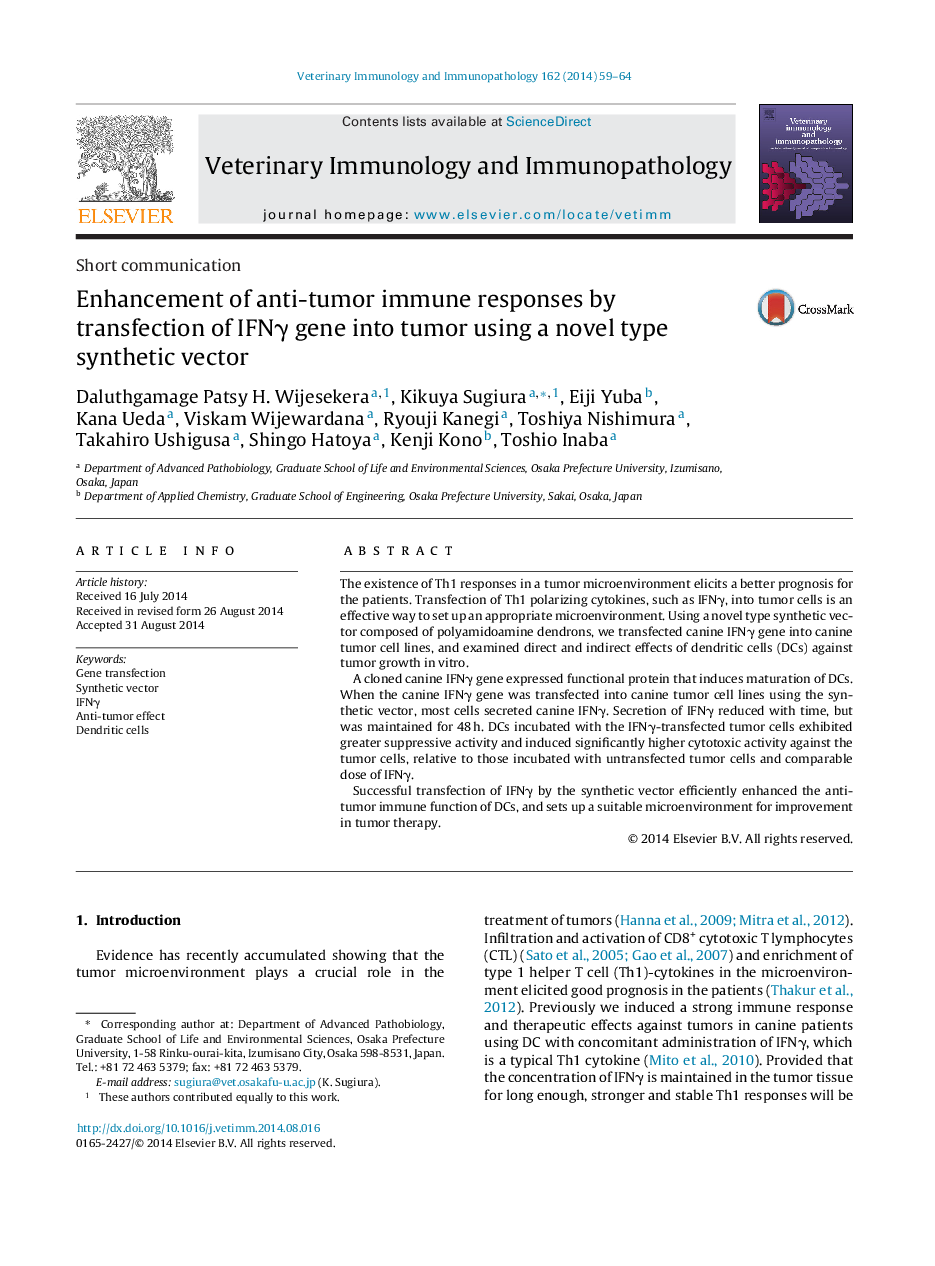| Article ID | Journal | Published Year | Pages | File Type |
|---|---|---|---|---|
| 5796741 | Veterinary Immunology and Immunopathology | 2014 | 6 Pages |
The existence of Th1 responses in a tumor microenvironment elicits a better prognosis for the patients. Transfection of Th1 polarizing cytokines, such as IFNγ, into tumor cells is an effective way to set up an appropriate microenvironment. Using a novel type synthetic vector composed of polyamidoamine dendrons, we transfected canine IFNγ gene into canine tumor cell lines, and examined direct and indirect effects of dendritic cells (DCs) against tumor growth in vitro.A cloned canine IFNγ gene expressed functional protein that induces maturation of DCs. When the canine IFNγ gene was transfected into canine tumor cell lines using the synthetic vector, most cells secreted canine IFNγ. Secretion of IFNγ reduced with time, but was maintained for 48 h. DCs incubated with the IFNγ-transfected tumor cells exhibited greater suppressive activity and induced significantly higher cytotoxic activity against the tumor cells, relative to those incubated with untransfected tumor cells and comparable dose of IFNγ.Successful transfection of IFNγ by the synthetic vector efficiently enhanced the anti-tumor immune function of DCs, and sets up a suitable microenvironment for improvement in tumor therapy.
